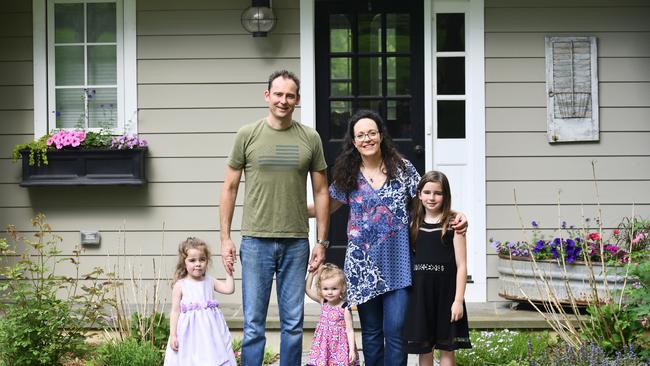Stranded families not positive about negative test rule
All international arrivals are to produce expensive negative COVID-19 tests before boarding flights from Friday, adding thousands of dollars to stranded Australian families trying to get home.

All international arrivals into Australia are to produce expensive negative COVID-19 tests for family members as young as five before boarding flights from Friday, adding thousands of dollars to overstretched and unemployed stranded Australian families trying to get home.
The government is to clarify its new rules demanding Australians produce a negative test within 72 hours before leaving. The rules, announced 10 days ago, haven’t been introduced across the board yet because obtaining the tests in a timely manner in some locations is difficult.
But it is understood that major departure points such as London, Los Angeles and Frankfurt will require the ‘‘gold standard’’ polymerase chain reaction (PCR) test through certified private providers that cost between $300 to $580 for one test by the end of this week.
Desperate Australians overseas cannot access any government benefits apart from interest-free loans for each person of $2000 to assist with living expenses and a $1500 loan for a flight ticket if they can prove they have depleted their savings.
However, The Australian has been told that people without any other source of money could apply to the government hardship fund to help pay for the testing.
The Australian has learned that Scott Morrison’s announcement on January 8 that travellers must have a negative COVID test resulted in Australians missing flights home because their test result had not been returned within the 72-hour requirement and there was a belief the rules were being implemented immediately.
In the days since, there has been confusion about the test requirement, with Smart Traveller now advising that the negative test result is required for flights from Friday.
Many who have experienced repeated last-minute cancellations over the past nine months fear they will pay for the tests only to be bumped again in the days before the flight, requiring another round of testing for the next supposed flight.
Martha Walkowsky, her husband and twin four-year-old children have been trying to return from Dubai to Sydney since September after Mr Walkowsky was made redundant. They have had four flights cancelled, the most recent being Saturday’s decision by Emirates to abandon flights in and out of Sydney, Brisbane and Melbourne.
‘‘We just don’t know what we’re going to do as we can’t continue to wait it out here with no job, dwindling savings and no visas,’’ Mrs Walkowsky said.
‘‘The stress is immense — we don’t want handouts, we just want a fair go. I am in knots.’’
Peter and Sasha Avery and their three daughters, Riley, 9, Hayden, 4, and Bailey, 2, want to move home to Sydney after more than eight years in New Jersey.
They have sold the family home there and Mr Avery has a new job starting in Sydney in a fortnight, with a flight booked for Wednesday.
Mr Avery said he supported the Prime Minister’s actions but lack of information about the specifics was causing some stress.
‘‘We just need to understand the specifics of whether and how it impacts the flights we have booked,’’ he said.
Other Australians who were booked with connections to a flight out of Los Angeles last Thursday were notified their seats were cancelled when they went to check in at New York and St Louis.
Nearly 4000 Australians classed as vulnerable are still waiting to return to Australia from Britain. Since October, the Australian high commission there has helped 6300 Australians to return, but another 33,000 Australians around the world are registered with the Department of Foreign Affairs and Trade wanting to return.
There are estimates that as many as 100,000 Australians would like to return but have given up trying to negotiate skyrocketing airfares and uncertainties in getting a confirmed seat.
Stranded Australians have pleaded for the Australian government to allow them to access Centrelink payments in the meantime, but current legislation requires Australian residency. In London, about 380 Australians have received grants from the $67m government hardship fund.
Under new rules, Australians who travel to Britain will now have to self-isolate at a UK residence for 10 days.
In England, however, Australian arrivals, like travellers from other low-risk countries, will be eligible to reduce the self-isolation period to five days if they pay for a private test on the fifth day and test negative.




To join the conversation, please log in. Don't have an account? Register
Join the conversation, you are commenting as Logout